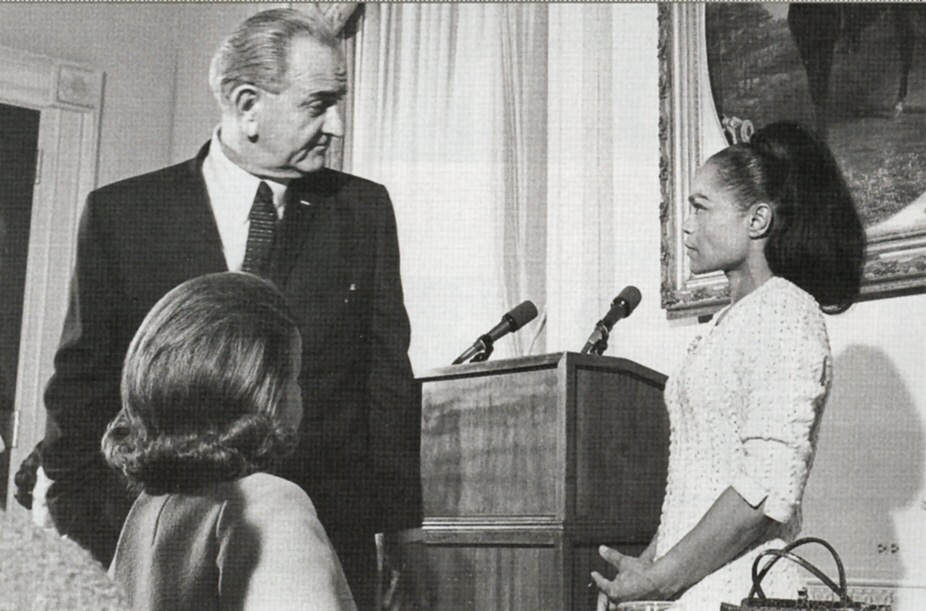There has been much talk about how Beyoncé used the Super Bowl to
challenge America on the issue of Black Lives Matter. Many commentators have
praised her willingness to be “political” on a global stage. She and her
dancers dressed as Black Panthers while she sang her new song Formation.[1] Some commentators praised her for what is
likely to have been her most radical political statement in her 20-year career.[2] Other immediately criticised her for
“attacking” police officers.[3]

Does Beyoncé know why the caged bird
sings?
For those who wish to promote Beyoncé’s radicalism to show her relevance
for today’s youth, it seems a strange situation. They want her radical enough
to appear relevant, but not court too much controversy. [4]She, and most importantly her management
team, can use artistic licence for plausible deniability.[5] The radicalism of her performance
has the hallmarks of a staged event. She and her management team know that too
much controversy is bad for business. Yet, it seems more a corporate branding
exercise[6] just as Janet Jackson’s
wardrobe malfunction was designed to gather publicity.[7]
Is Beyoncé a political vessel to be filled by her management?
Many people would like Beyoncé to be a standard bearer for their political
movement. Yet, her career has rarely courted political controversy. She has
never challenged the status quo. She is not known for “speaking truth to
power”, “forcing power to speak the truth” or risking her career for her
political beliefs. It is discouraging to see that Beyoncé’s performance is
considered “radical”. Perhaps it is corporate radical chic for a social media
age. The focus on Beyoncé will cause us to lose sight of true political
courage. We forgot a great American voice who dared to speak truth to power, forced
power to speak the truth in the nation’s highest political institution and
risked her career for it.
Eartha Kitt stood and delivered on her beliefs in the belly of the
beast.
Eartha Kitt was radical. She confronted President Lyndon Johnson at the
White House. She protested the Vietnam War at the war’s height and the height
of the President’s power.[8] She did not try to package her
message with high heels and exposed flesh.[9] She stood up and held the President
to account. Most importantly, she did this and accepted the consequences. Her
career suffered after she stood and delivered for her beliefs.


What is perhaps a strange irony, Beyoncé sampled Kitt during her song Compromise where
Kitt scoffs at the idea that she, or any woman should compromise their lives
for a man. The irony is seen in the way that Beyoncé’s sister, Solange,
attacked Jay Z for an indiscretion.[10] More directly, Beyoncé claims that
she was inspired by Kitt,[11] yet has done little if anything political to reflect her example.[12][13]
A profile in corporate courage?
Perhaps for our jaded, corporate era where courage is reduced to a
branding exercise, we find that Beyoncé is a profile in courage. A different
era, when artists sacrificed their careers to speak truth to power, required a
different form of courage. When it comes time to tell my daughter about a
powerful woman who stood up for her beliefs, spoke truth to power, made power
speak, and accepted the consequences, I will turn to Eartha Kitt not Beyonce.
[1] http://fansided.com/2016/02/07/beyonce-formation-lyrics/ These
are the uncensored lyrics which were *not* sung at the Super Bowl. I suppose it
is indicative that Beyoncé would make a “political” statement but ensure that
it Beyoncéd with the commercial imperative that has driven her career.
[4] Even her Black Power salute lacked the overt
political content of Tommie Smith or John Carlos (or in his own way Peter Norman http://griotmag.com/en/white-man-in-that-photo/ )
[5] Beyoncé performed the
clean lyrics to her “political” song.
[7] https://www.youtube.com/watch?v=npF1lkKEM9o and http://www.dailymail.co.uk/tvshowbiz/article-207344/Janet-admits-planning-boob.html In
a sense, the controversy was designed to further her career.
[8] For a full account of the episode see Janet Mezzack
"Without Manners You Are Nothing": Lady Bird Johnson, Eartha Kitt,
and The Women Doers' Luncheon of January 18, 1968 Presidential Studies
Quarterly, Vol. 20, No. 4, Modern First Ladies White House Organization (FALL
1990), pp. 745-760
[11] http://empowering.hearst.co.uk/be-inspired/the-women-who-inspire-beyonce/ What is sad is how it all seems staged and packaged so that Beyoncé can assume the mantle of a
“trailblazer” who speaks her mind. http://www.billboard.com/articles/columns/music-festivals/6685942/beyonce-made-in-america-review-recap-destinys-child “By
inserting her voice among these historically brash and outspoken women, Beyoncé
is getting out in front of the next thinkpiece, claiming her spot among the
trailblazers before anyone else can question her role. Ever the self-aware
documentarian, she's showing fans exactly how she wants to be remembered: a
beautiful, self-possessed woman who wants her fans to believe that they are too
-- a daring proposition if there ever was one.”
[12] http://www.nytimes.com/interactive/2015/08/23/fashion/readers-respond-beyonce-silence.html?_r=0 Beyoncé’s silence
receives as much attention as if she had spoken. Perhaps this is the perfect
political symbol for the social media age Beyoncé as canvas her fans can
project their beliefs onto so as to reflect back what they want to see.
[13] [12] “I played at
the inauguration because there were a lot of kids in the audience that I wanted
to reach, that’s all. Maybe one day I will speak of my political beliefs, but
only when I know what I’m talking about.” http://tinyurl.com/zw66g8v
No comments:
Post a Comment